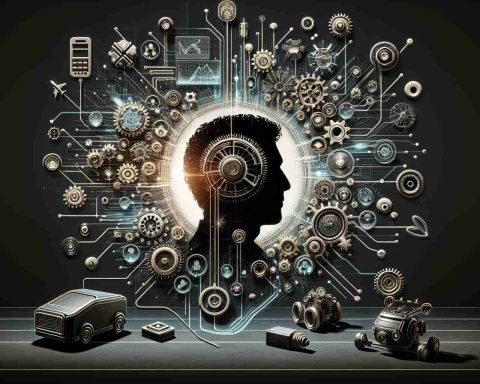On September 13, Nojima, a leading electronics retailer in Japan, announced the launch of a groundbreaking application developed in collaboration with Hitachi’s Happiness Planet. The new app utilizes artificial intelligence to embody the thought process of Nojima’s president, Hiroshi Nojima. When users input their inquiries, the app generates responses that simulate Nojima’s insights, effectively creating a digital representation of the president for internal use.
During a press conference held in Yokohama, Nojima expressed his enthusiasm about the app’s performance, noting that while the responses are impressive, he would prefer them to be even more concise. The development team trained the AI by feeding it a range of Nojima’s writings and speeches, enabling it to generate tailored answers for various queries. The app is now available for employees to access via computers and smartphones, providing a unique platform where they can seek guidance on work-related issues.
Meanwhile, Happiness Planet is expanding its offerings to the public, allowing users to consult an AI version of prominent figures, including athletes, for personalized advice. Looking ahead, the company plans to develop similar applications tailored for various businesses, aiming to provide insights that align closely with the thought processes of their respective leaders.
Nojima and Hitachi Launch Innovative AI Assistance App to Enhance Employee Support
On September 13, a significant leap in workplace technology was made with the launch of an innovative AI assistance application developed by Nojima, a prominent electronics retailer in Japan, in partnership with Hitachi’s Happiness Planet. The app utilizes advanced artificial intelligence to replicate the decision-making and thought processes of Nojima’s president, Hiroshi Nojima, facilitating enhanced internal communication and employee guidance.
Key Questions Addressed:
1. What are the primary functions of the new app?
The app is designed to provide responses to employee inquiries, offering insights and guidance that reflect the president’s perspectives. It aims to streamline communication and empower employees to make informed decisions based on Nojima’s values and knowledge.
2. How was the AI trained?
To create a truly representative model of Hiroshi Nojima’s thought process, the development team input a diverse array of the president’s written works, speeches, and public communications into the AI system. This process enabled the AI to learn not only the factual information but also the tone and style of Nojima’s communication.
3. How does this app impact internal dynamics at Nojima?
By providing employees with access to an AI that embodies their leader’s insights, the app could potentially enhance morale and foster a culture of collaboration. Employees may feel more supported in their roles, knowing they have direct access to a representation of leadership thought.
Key Challenges and Controversies:
While the introduction of the AI app is exciting, there are noteworthy challenges and controversies:
– Data Privacy Concerns: With AI applications processing potentially sensitive company data and personal employee inquiries, concerns regarding data security and privacy are paramount. Ensuring compliance with privacy laws is critical.
– Overdependence on AI: There is a risk that employees may become excessively reliant on the AI for decision-making, which could diminish critical thinking and personal initiative in problem-solving scenarios.
– Ethical Implications: The ethical implications of creating AI representations of living leaders raise questions about authenticity and the potential for misrepresentation of a leader’s views or intentions.
Advantages and Disadvantages:
Advantages:
– Enhanced Decision-Making: Employees can receive immediate guidance, leading to faster and potentially more informed decisions.
– Consistency in Communication: The app promotes a uniform understanding of leadership directives, aligning the workforce with the company’s mission.
– Accessibility: Available on various devices, the app ensures that support is just a click away for employees, regardless of their location.
Disadvantages:
– Limited Understanding: AI may not always capture the nuance of complex queries, leading to responses that lack depth or context.
– Potential Misinterpretation: Employees may misinterpret the AI’s outputs, especially if they do not fully understand the context of the original responses from Nojima.
– Job Displacement Concerns: As companies increasingly adopt AI solutions, there are fears regarding job security for roles traditionally reliant on personal interaction or human oversight.
Future Prospects:
Looking ahead, both Nojima and Hitachi intend to refine this AI model and expand its applications to various other sectors. The ambition is to create AI assistants for businesses that are tailored to reflect the unique thought processes of their leaders, thus promoting a forward-thinking approach to corporate communication.
For further insights on AI integration in businesses, visit Hitachi and Nojima.

















